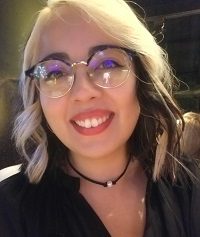Cheyenne Reyes, MLS(ASCP)CM, ASCLS Ascending Professionals Forum Vice Chair

The pandemic brought on a thick fog of days blurring together, full of CDC updates, case numbers, ever-changing regulations, workflow readjustments, and the like. After so many months of performing the same tests on the same specimens, it can grow difficult to keep your passion for the laboratory alive. There were days of anger for the unappreciation, days of sadness for our patients, days of gratitude for the people you work with, and days of empowerment to make a difference. Through that rollercoaster, I noticed fundamental differences in how laboratory staff viewed these stressors. Within these differences, I realized that my reactions to many of the circumstances were vastly different in comparison.
I often found myself confused about why I questioned the way situations were handled and wanted to speak out. Most of my coworkers were content just going with the flow. It reminded me of a poll that I saw in one of the MLS groups on Facebook, asking what Enneagram type all the laboratory professionals in that group were. I knew what type I was but had not looked much further into the personality types past my initial evaluation that a friend asked me to do out of curiosity. I was surprised to see that I was one of the few type 8s out of hundreds of laboratorians who answered. The most common was type 5, also known as, “The Investigator.”
“Type 8s make great patient advocates and can be a voice for what laboratory professionals really want in situations in which others may not feel comfortable.”
With a title such as “The Investigator,” there’s no wonder why it would be the most common personality type among laboratory professionals, who are commonly referred to as the detectives of healthcare. Type 5s crave knowledge and understanding. The essential problem-solving of laboratory work meets their basic need to learn and understand. In general, they need to feel competent in everything they do, and they strengthen their self-confidence by closing off and learning more information about a subject.
The type 8 personality, however, is commonly known as “The Challenger.” This personality type has a very strong sense of justice. There is a need to be in control of their environment and to be self-reliant. Type 8s desire to leave their mark on the world and aren’t afraid to take the initiative to get things done. We are known for our can-do attitude.
In my research of the Enneagram types, through various platforms, including social media, I realized why I seem to struggle harder to find happiness in the day-to-day work of this profession. The truth-seeking nature of the job does not necessarily fulfill what is considered my “basic desire” to have agency over my life and future. However, my passion for science and understanding of the importance of the laboratory holds me here. The pandemic has forced me to identify the aspects of my professional life that inspire me. Even though I do not always fit in well with others in the lab, I must recognize the need for strong personality types that will take a stand when it is needed.
Type 8s make great patient advocates and can be a voice for what laboratory professionals really want in situations in which others may not feel comfortable. I have found the key for me is to avoid stagnation and to stay involved on a larger scale. Without ASCLS, I am not sure I would still be a proud medical laboratory scientist. It has empowered me to take a stand for our profession when I know it’s needed, even if there is no one else to stand with me. The organization reminds me why people of all different personality types—whether it be Enneagrams 1 through 9 or any Myers Briggs combination—are vital to this profession. We all have something different to contribute. We each just need to search for the parts that keep the fire alive.
Cheyenne Reyes is a travel scientist, currently working in Chicago.
